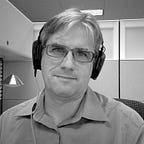Skippers — Number Seven
Skippers are a curated set of articles I found interesting. I originally shared a similar set of articles with some commentary among the leaders in our R&D team (aka “The Skippers”). To goal was to help us become better leaders and managers, or at a minimum be thought provoking.
Halt (and don’t catch fire)
This is a repost out of a newsletter I receive daily.
Normal humans make about 35k decisions on a typical day — and whether or not they’re good ones depends a lot on what our stomachs say.
You’re probably familiar with the idea of “decision fatigue” — the idea that each decision we make pulls from a single, limited pool of energy. But, how big of a pool we start from, and how fast we drain it, is impacted by a bunch of factors.
And recognizing when our “decision tank” is running low is crucial to making good judgments. AKA, not yelling at Sven, the intern, for bringing you a latte with 2% milk instead of soy. (Of course, this is not a real task for the interns at my work.)
HALT in the name of Sven
Human behavior expert Melody Wilding suggests using the “HALT system” to ask yourself whether or not you’re in any condition to make a rational decision. The method boils down to taking stock of a few basic needs and asking yourself whether you’re:
- Hungry: “Hanger” is real. Low blood sugar can make you feel anxious and cranky (take, for example, a study which found that judges ruled more harshly right before lunch). So before you scald someone with a boiling hot latte, grab a cheese stick.
- Angry: If you’re actually experiencing non-food related anger, research shows that “venting” has “virtually no benefits,” and can actually increase negative feelings. Wilding suggests journaling or meditating to re-center. Dear diary, I hate Sven…
- Lonely: Humans are social by nature, and turns out, the warmth of your laptop isn’t a replacement for human touch. If you find yourself spiraling, phone-a-friend, or take a break to grab coffee with a coworker.
- Tired: Fun fact, going through life in a state of perpetual exhaustion isn’t sustainable. Having good “sleep hygiene,” (a nightly bedtime routine) is just as important as brushing your teeth.
HALT — It’s pretty simple stuff. And your interns will thank you.
New (old) book I am reading
The book The hard things about hard things spoke very highly about Andy Grove’s classic High Output Management. The book is a little dated, as it is written in the 1980s, before some of you were even born. Email is touted as a disruptive technology(!). Nevertheless, a few chapters into the book shows me there are still some pearls of wisdom in it.
The three key ideas in the book:
- Take an output-oriented approach to management.
- Teams — the output of a manager is not how many bugs he prioritizes, or papers he writes. The output of a manager is the output of the organizational units under his or her supervision or influence. High managerial productivity depends largely on choosing to perform tasks that possess high leverage.
- A team will perform well only if peak performance is elicited from the individuals in it. No slackers.
Gol Gol Goooooollll Goaaallll
To perform at your best, focus on goals and not tasks, makes you ponder if you’ve written your goals correctly.
Goals are strategic and aspirational, whereas tasks are tactical and will likely happen anyway. Goals are progress oriented, not event oriented. Because of this, goals tend to have much higher impact over time for people
The article has some good examples when something is written as a task, versus when something is written like a goal.
Do you write your own weekly goals? Do your reports write weekly goals?
RAT
The MVP is dead. Long live the RAT appears to be a story about yet another acronym. It discusses how we should not focus on building a Minimal Viable Product (MVP). These sometimes result in a Minimal Lovable Product. We should focus on testing the riskiest assumption, hence Riskiest Assumption Test (RAT). What assumption has to be true for the opportunity to exist. Avoid the temptation of prematurely creating a rudimentary product.
Aside of learning about a new term, it struck me how Google X created a prototype of Google Glass in a single day. Holy Moly. Even it were a month, it would be pretty cool.
